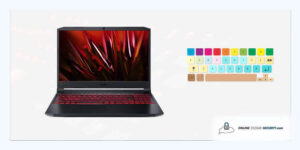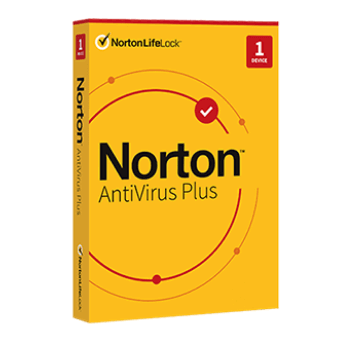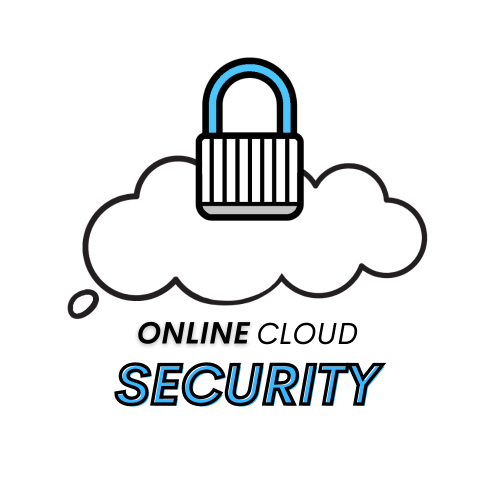
By Online Cloud Security | Last Updated on September 23, 2021

It is essential to learn how to secure your laptop or computer against unauthorized access so that your information will not get stolen or lost. Hackers are always ready to utilize any opportunity available to them.
With the help of this guide, you’ll learn exactly how to keep hackers and other unwanted people from gaining access to your laptop or computer and other accounts you may be logged into:
A firewall is essential in securing data. It creates a barrier that prevents hackers from accessing personal information on a given computer. Utilize inbuilt firewall features in windows ten or install a firewall from third-party providers.
The firewall should be set up to prevent any authorized access. The application of a reliable firewall can prevent most attempts by hackers to steal information. Go for a high-quality firewall, and it will keep the computer protected against any unauthorized access.
The simple feature can be a great way to prevent hackers from utilizing internet connections to steal data from the computer and expose the business to losses. The firewall feature in a computer can be enabled or disabled; always ensure the feature is enabled to apply the essential security features to protect personal data.

Did you know that 99.9% of hacked Microsoft accounts didn’t have multi-factor authentication? You need an extra layer of protection if you really want to prevent unauthorized access to your laptop or computer. A two-factor authentication where a code is sent to a device, such as a phone notification, will make it hard for the hackers to access your laptop or computer.
Two-factor and multi-factor authentication creates more layers of security that are essential to secure a laptop. Choose two-factor authentication method that is convenient to use. It becomes hard for hackers to access the password, and they get the code that is mostly sent to an email address or a phone.
Always ensure the smartphone where the code will be sent is also well secured. Use security features such as fingerprint lock to avoid incidences where the phone can be hacked.

Windows 10 comes with an inbuilt windows defender. The defender is very helpful in securing the computer system against virus attacks. Hackers can develop malicious programs that can take over the computer and lead to losses or slow operations.
The windows defender can be enabled or disabled. Ensure to check out the settings and enable the defender. It is a helpful feature that can go a long way in securing the computer. Several viruses are aimed at exploiting different weaknesses in a computer.
With the updates in Windows 10, it is hard for a virus to enter the computer system and take over the computer operation. The computer will stay secure after the introduction of the security features. Enjoy peace of mind after enabling the windows defender. It is a highly reliable defender that assures users the highest level of protection.

Having a paid antivirus software like Norton Antivirus Plus on your computer or laptop is essential for keeping hackers away from accessing your data. The antivirus should be kept up to date. Some computer virus attacks are developed to exploit different weaknesses.
The developers of the antivirus keep updating the software so that they can deal with the latest threat. It will be an added advantage to the internet users after they get the regular updates. It secures the computer to allow for easy operations. Many people install antivirus software, but they tend to vary based on several factors.
Go for a high-quality antivirus that is known to secure devices such as computers, laptops, and even mobile devices. Paid antivirus solutions typically don’t come with strings attached, many “free” antivirus programs do come with unwanted programs and even malware! There are cases where people have lost a lot due to virus attacks.
Windows need regular updates. Sometimes the updates are aimed at improving security. Connect to a secure Wi-Fi, then allow the updates. They will install the necessary security features that are essential when working on different security features. The antivirus software also needs regular updates.
Ensure the computer has access to the internet connection to get the desired updates. Hackers utilize various weaknesses in computers to steal a personal identity. When updates are released, they tend to deal with a wide range of security issues affecting the business.
Always countercheck to ensure the updates for antivirus and other software in the computer are from reliable sites. Sometimes hackers can disguise their software to appear real. Avoid installing any update unless it is from websites that can be verified.
The passwords should be strong. For instance, use a screen lock password that combines uppercase, lowercase, numerical, and symbols. A long password is hard for hackers to gain access to. Also, check out the passwords used to lock disks. They should be long enough to avoid incidences where someone can guess.
Some software can apply brute force to generate passwords at random. Use features that can avoid the software. Some people use strong passwords, but they store them on the computer or written and stored in the office desk.
Avoid writing down the passwords if possible. If it is a must, then look for the safest place where the passwords can be stored. The passwords are sensitive. They can easily land someone into trouble when they are not handled well. Use password-generating tools to create strong passwords if possible. Avoid using birth names or dates because they are easy to guess.

Sometimes hackers use phishing emails to trick computer users into clicking on links that install software that can lead to hacking. Avoid spam mail at all costs. Before a given email can be marked as spam, the email platforms such as google have applied their safety filters, and the emails have fallen short of the security tests.
Avoid such emails to enjoy the highest level of security. There are cases where people have been exposed to losses after they end up opening spam emails. The email can have attractive headings, but the topics they are talking about are not of your concern in most cases. If something appears to be out of place, but it has landed in your mail, be cautious when opening it.
It could end up exposing the business to losses if hackers send it. Having a strong antivirus and antispam software can increase the chances of clearing the issue of hackers.
Sometimes hackers take advantage of insecure network connections to gain access to your computer. Secure the Wi-Fi at home. If possible, avoid at all costs operating a personal computer that has sensitive data when in public Wi-Fi.
Several software solutions can secure a home website. Enable Wi-Fi security features to increase the chances of staying safe when at home. Employing the highest security features is essential in ensuring the website is secure for everyday use.
Applying encryption is another highly reliable method in avoiding sensitive data getting into the hands of unauthorized people. Encrypt the data in the computer hard disk. When accessing sensitive information online or when sharing personal data, use websites that utilize the encryption feature.
Check out the padlock sign to the websites to know whether they are fully encrypted. Accessing data from encrypted sites avoids the risk of falling victim to hackers. Many companies utilize the encryption feature to avoid incidences where they can lose sensitive data to the hands of hackers.
The most obvious step that you should take to prevent unauthorized access to your laptop or computer is to shut it down when it is not in use.
After leaving the office, ensure that your laptop or computer is switched off to avoid cases where it will remain connected to the internet from where hackers can gain access and steal the sensitive data, although this might seem excessive, if you’re really trying to secure your computer from unauthorized access, taking these steps is crucial.
For people to access data from a given computer, it should be on. Shut it down, and they will find it hard to open it, considering you had enabled a password before the screen could unlock. The simple steps people take to secure their computers assure them the highest level of safety when handling the computers.
**Onlinecloudsecurity.com is a participant in the Amazon Services LLC Associates Program, an affiliate advertising program designed to provide a way for websites to earn advertising revenues by advertising and linking to Amazon.com and affiliated sites. As an Amazon Associate we earn affiliate commissions from qualifying purchases.**
It becomes easy to secure a personal computer by taking the above steps. They are easy to follow steps, but they are very helpful in securing the computer. Avoid losses related to unauthorized access to sensitive data by enabling the security features enabled in the computer.
We hoped you enjoyed this article on how to secure your laptop or computer from unauthorized access, and as always, share this article on social media and make sure to follow us on Pinterest for more helpful tips on Online Security for your laptop!
Click any button down below to share this article on the following channels:

Online Cloud Security is here to recommend you the most secure devices, from laptops to smartphones, we only want to provide you with products that we have tested and used ourselves for online security. Every product that we recommend is heavily inspected and tested for security against hackers, viruses, malware, and any other intruders that may want to steal your information.

Online Cloud Security is here to recommend you the most secure devices, from laptops to smartphones, we only want to provide you with products that we have tested and used ourselves for online security. Every product that we recommend is heavily inspected and tested for security against hackers, viruses, malware, and any other intruders that may want to steal your information.
Your Trusted Source for Online Security